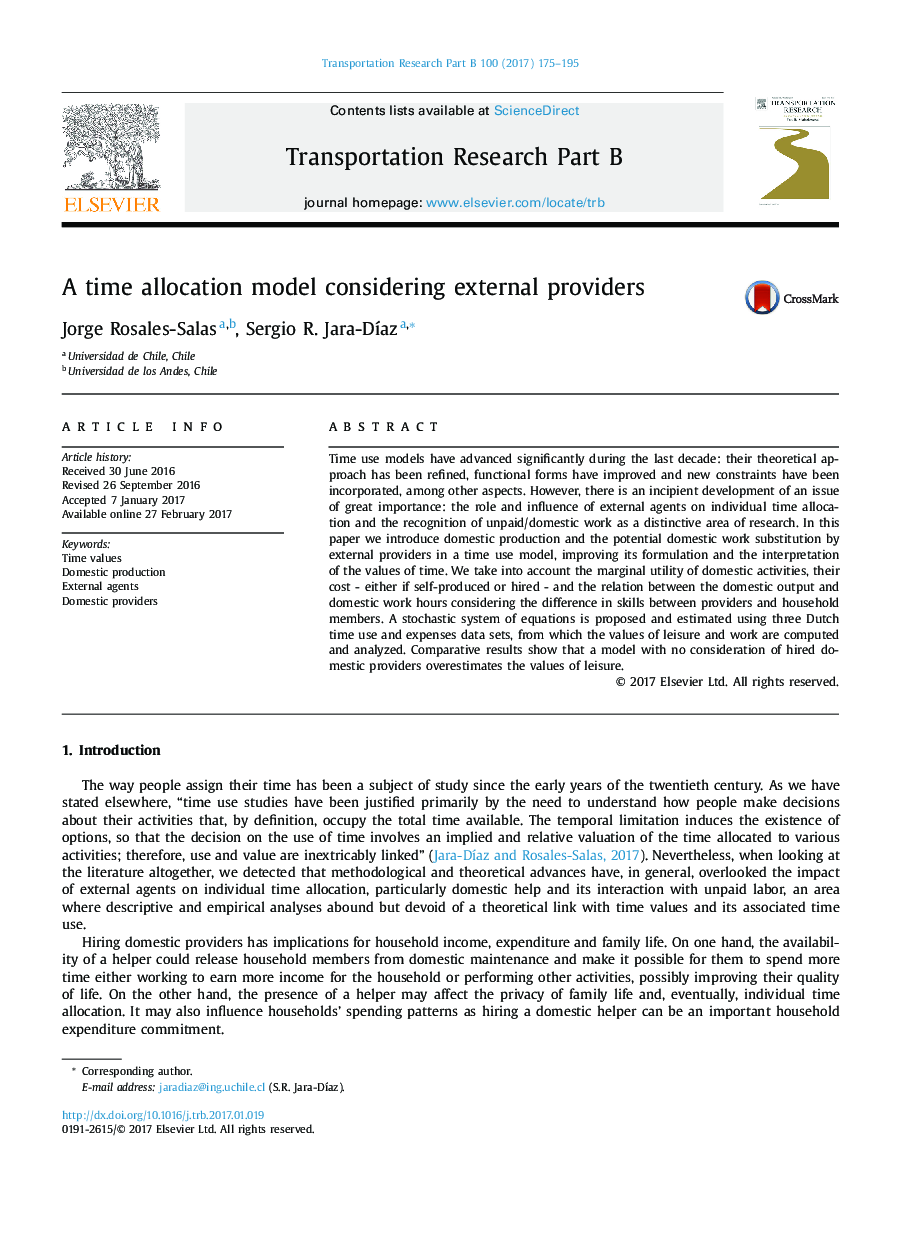| Article ID | Journal | Published Year | Pages | File Type |
|---|---|---|---|---|
| 5127037 | Transportation Research Part B: Methodological | 2017 | 21 Pages |
â¢Novel time use model introducing domestic production and the potential domestic work substitution by external providers, improving its formulation and the interpretation of the values of time.â¢New elements considered: marginal utility of domestic activities, their cost - either if self-produced or hired - and the relation between the domestic output and domestic work hours considering the difference in skills between providers and household members.â¢Empirical application shows that a model with no consideration of hired domestic providers overestimates the values of leisure.
Time use models have advanced significantly during the last decade: their theoretical approach has been refined, functional forms have improved and new constraints have been incorporated, among other aspects. However, there is an incipient development of an issue of great importance: the role and influence of external agents on individual time allocation and the recognition of unpaid/domestic work as a distinctive area of research. In this paper we introduce domestic production and the potential domestic work substitution by external providers in a time use model, improving its formulation and the interpretation of the values of time. We take into account the marginal utility of domestic activities, their cost - either if self-produced or hired - and the relation between the domestic output and domestic work hours considering the difference in skills between providers and household members. A stochastic system of equations is proposed and estimated using three Dutch time use and expenses data sets, from which the values of leisure and work are computed and analyzed. Comparative results show that a model with no consideration of hired domestic providers overestimates the values of leisure.
